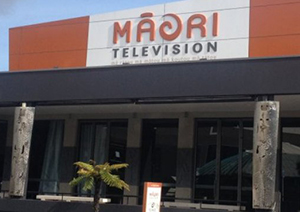
AUCKLAND (The New Zealand Herald / Pacific Media Watch): OPINION: It would be a great shame if the controversial appointment of Paora Maxwell as Māori Television's new chief executive clouds the station's 10th birthday celebrations. Nothing should be allowed to detract from the strong foundations that have been built in its first decade. The position that Māori Television occupies today, and the way it has enriched the lives of New Zealanders, offer the strongest of responses to those who opposed its existence from the start.
Initially, a birth that was as lengthy as it was troubled provided plenty of ammunition for the doubters. As long ago as 1986, the Waitangi Tribunal acknowledged the Māori language was a taonga under the Treaty and that the Crown, therefore, had a responsibility for its preservation. This laid the basis for Māori television, but it was to be 18 years before it came to fruition. In the meantime, there was an ill-starred predecessor, Aotearoa Television, and the embarrassing spectacle of the station's first chief executive, John Davy, being imprisoned for providing false credentials.
Since Māori Television has started broadcasting, however, its record has developed into one of excellence and enterprise. In many ways, it has become the de facto public broadcaster for ceremonial events such as Anzac Day and Waitangi Day. It seized this opportunity to capture a wide audience when Television New Zealand seemed to lose interest in that sort of occasion.
At the same time, it cannot be said to have failed in its core function of promoting and revitalising the Māori language and culture. All in all, it has fulfilled admirably the prescription of its founding legislation to provide a "high-quality, cost-effective Māori television service in both Māori and English that informs, educates and entertains a broad viewing audience".
Understandably, there has been friction over where the station's emphasis should lie. Should it, as traditionalists advocate, stick closer to promoting the Māori language? Or should it, as former chief executive Jim Mather and high-profile employees such as Carol Hirschfeld and Julian Wilcox maintain, seek to win a wider audience by appealing to Māori and Pakeha, notably through the broadcasting of more English language programmes? The tension heightened earlier this year when the station's Native Affairs programme stepped up its solid coverage of politics with revelations about the Kohanga Reo National Trust.
This assertiveness has got it offside with some strong voices in Māoridom. That has led to fears that Mr Maxwell's appointment is the prelude to the reining in of Native Affairs. A pre-prepared statement issued by him yesterday probably did little to ease those concerns. There were no words of support for the programme's assertiveness, only an observation that Māori Television had to walk a fine line between making interesting and accessible television and fulfilling its obligations to te reo Māori. "We have a role enshrined in legislation in regard to our language of which we cannot lose sight," he said.
Clearly, some Maori Television staff have doubts about Mr Maxwell, a former general manager of TVNZ's Maori and Pacific Unit. Yet there is some reason to applaud his appointment. Political pressure can sometimes be a malign presence in such processes. In this case, the Government is said to have had its misgivings, but the Māori Television chairwoman, Georgina te Heuheu, held out for who she believed was the strongest candidate.
Much rode on the shoulders of Māori Television when it began. By and large, it has succeeded not only in staking out a place in the television landscape but by providing a valuable training ground for young Māori talent. Hopefully, Mr Maxwell can now put his troubled appointment behind him and help make its second decade as rewarding as its first.
The New Zealand Herald editorial published on 28 March 2014.
Māori Television as NZ's real public broadcaster - speaking to nationhood
This work is licensed under a Creative Commons Attribution-NonCommercial 3.0 New Zealand Licence.




